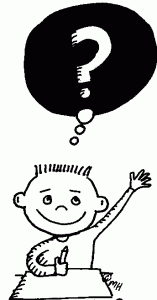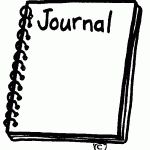 It pretty much goes without saying that curiosity comes naturally to kids! How many times has your child asked the question, “Why?”
It pretty much goes without saying that curiosity comes naturally to kids! How many times has your child asked the question, “Why?”
But, observation, and the ability to focus are also both skills that are fundamental to learning about the scientific method, and something you can help your child learn. It’s never too early to start, even before your child goes to school.
The first thing to do is to buy your young scientist an “Observation Notebook.” This is where they will write descriptions and draw pictures of what they see. These types of notebooks are extremely important to scientists.
Really good scientific documentation in a notebook captures the development of the scientist’s thinking, how the research was done, and first impressions of what was observed by a scientist. This is as important as the data itself. Capturing data is not the same thing as observation. What made Sherlock Holmes a good detective was the ability to notice details…large and small. If you’ve never thought of it this way before, scientists are really detectives.
Some of the most successful scientists in the world learned to use a notebook at a very young age. Getting a middle school and high school student to learn the importance of maintaining an on-going notebook from the very early concepts of a science fair project through its conclusion is usually a challenge, and I know many science fair students who waited until the last minute to “catch up” with completing their notebook the last few days before the competition. It’s difficult enough for students to remember everything they did for their project if they haven’t taken good notes along the way, and it’s near impossible to recall observations that may have happened months ago. This is not good science!
 While younger scientists may need help writing things down in their Notebook, older students usually need to constantly be reminded to do it. Pictures, photos & drawings of observations are perfectly legitimate to include but notebooks that include written observations enhance literacy skills; studies have shown that writing down observations helps to improve focus, memory and retention.
While younger scientists may need help writing things down in their Notebook, older students usually need to constantly be reminded to do it. Pictures, photos & drawings of observations are perfectly legitimate to include but notebooks that include written observations enhance literacy skills; studies have shown that writing down observations helps to improve focus, memory and retention.
Figuring out what to observe is only limited by your child’s (and your) imagination. For instance, take a walk around the house and write down or draw everything you see that’s green. Make sure you date the day of the observations and what room you were making the observations in; consider doing the same thing a month or two later so you can compare the changes. Or compare the number of green items in one room versus another.
If you do the same thing on a car ride, you might want to keep track of how many blue cars you see. If you do this as a game every Saturday on the way to soccer practice, you can even chart the results after a few months to see if there are any changes. If your child likes cats, have them create a Cat Observation Notebook.
While observation plays a major role in the steps of the scientific method, it’s also a skill that will help your child in so many other areas as he or she gets older.
